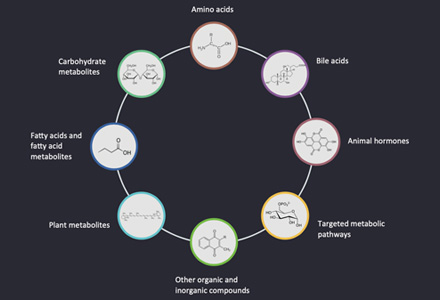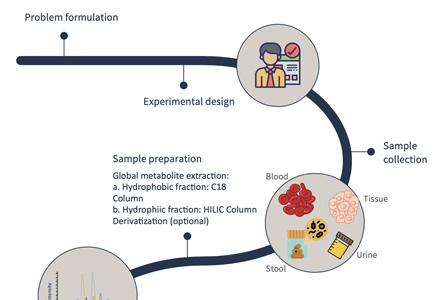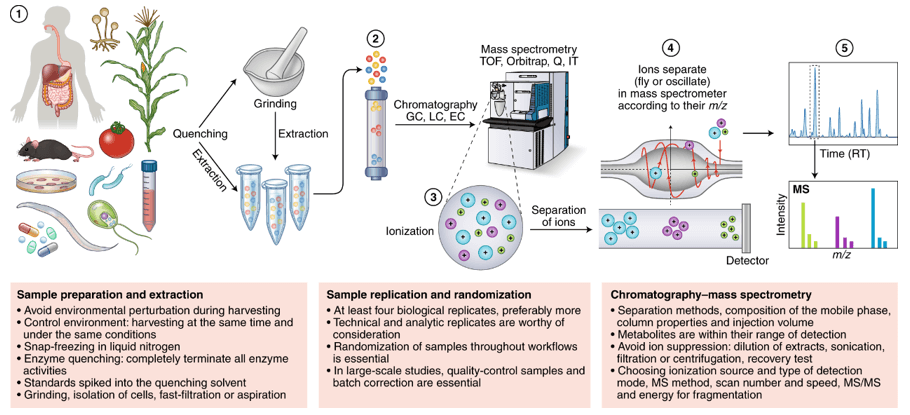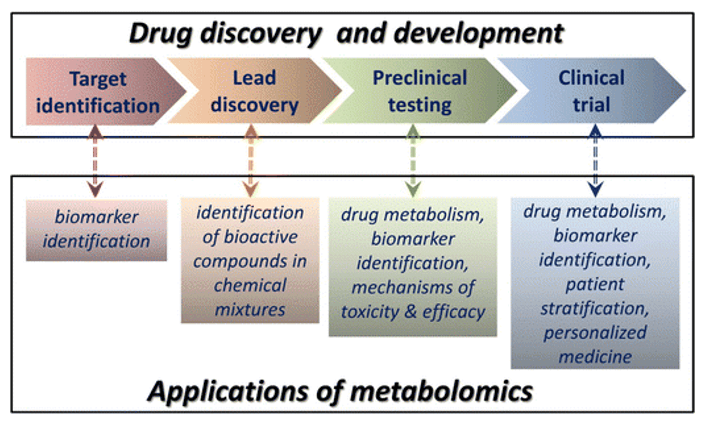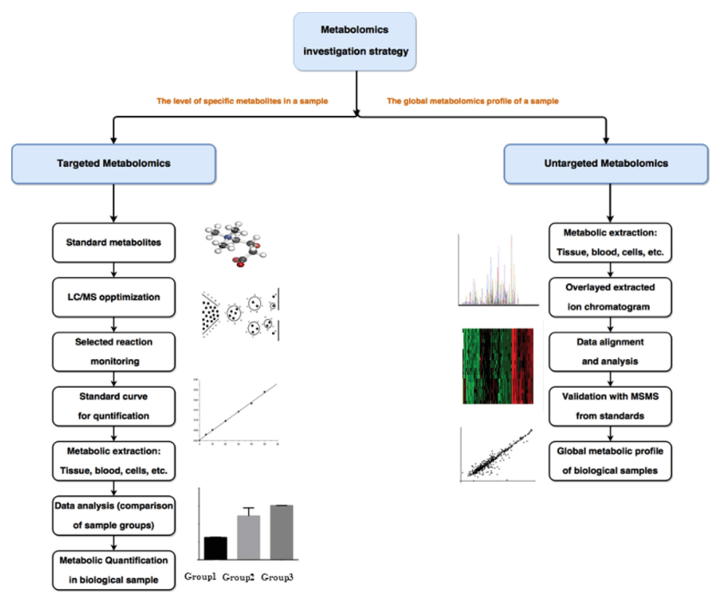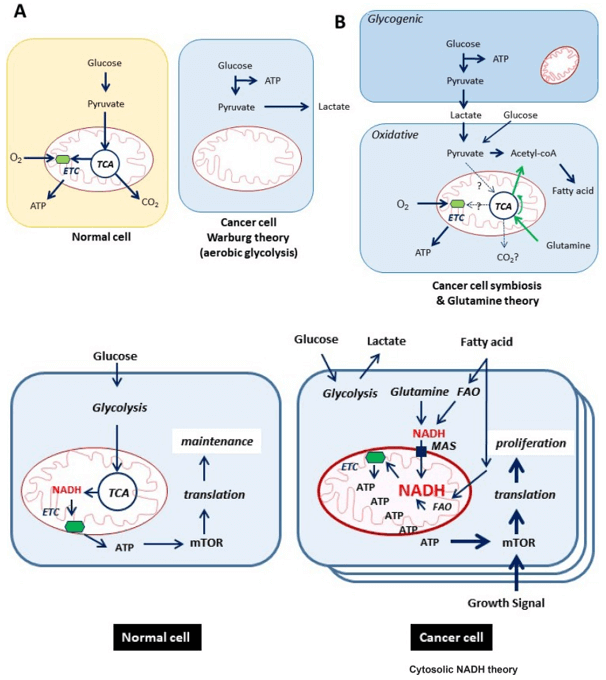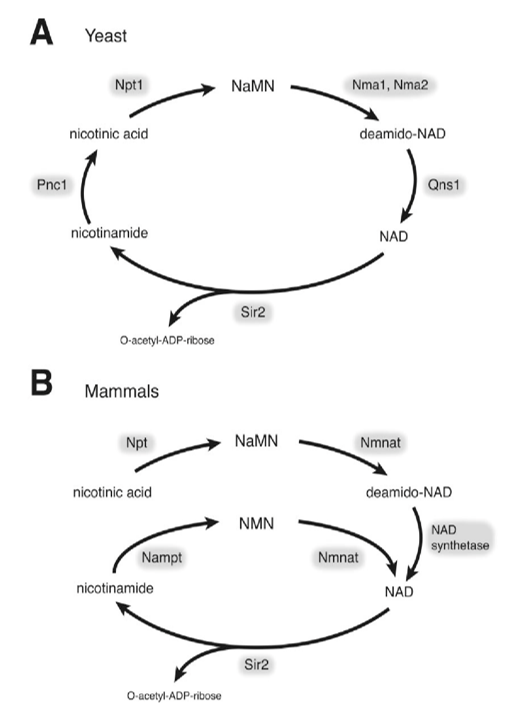Pentose Phosphate Pathway Metabolism Service
Submit Your InquiryOverview
The pentose phosphate pathway (PPP) is an alternative way of glucose use. It consists of the oxidative and the nonoxidative part (Figure 1). The oxidative part leads to ribulose-5-phosphate, carbon dioxide (CO2) and reduced nicotinamide adenine dinucleotide phosphate (NADPH). One molecule of ribulose-5-phosphate and two molecules of NADPH are produced out of one molecule of glucose. Subsequently, the nonoxidative part is composed of a series of reversible reactions that recruit other glycolytic intermediates like fructose-6-phosphate (F6P) and glyceraldehyde-3-phosphate (G3P) into pentose phosphates1. PPP is required for the synthesis of ribonucleotides and is a major source of NADPH2. Therefore, the PPP plays a pivotal role in combating oxidative stress. Abnormal PPP is associated with various diseases like diabetes and cancer. As a high-throughput tool, PPP metabolites analysis provides a powerful way to diagnosis and gain new insights in disease mechanism or treatment. With integrated array of separation, characterization, identification and quantification experience, Creative Proteomics provides reliable, rapid and cost-effective PPP metabolites analysis service for your various scientific purposes.
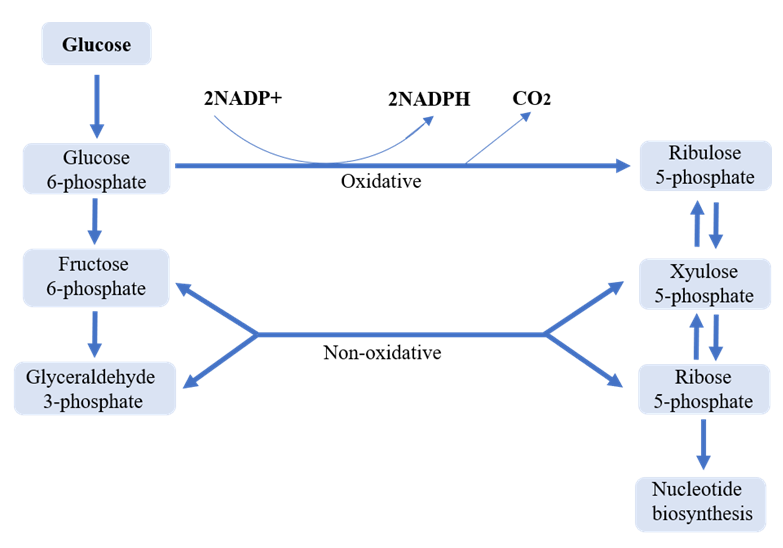 Figure 1. The overview of PPP pathway.
Figure 1. The overview of PPP pathway.
The Main Applications of Pentose Phosphate Pathway Metabolites Service
- Biomarker discovery
- Disease diagnostics
- Drug discovery
- Food safety
- Metabolic disease research
Advantages of Our Pentose Phosphate Pathway Metabolites Service
Service Workflow
The pentose phosphate pathway metabolites service provided by Creative Proteomics is based on our cutting-edge chromatographic separation and mass spectrometry platforms. The experimental workflow involves 4 steps: sample collection, metabolites extraction, MS data analysis and bioinformatics analysis (Figure 1). Our service will be tailored to specific samples and needs for optimal results.
 Figure 2. The overall workflow of pentose phosphate pathway metabolites analysis service.
Figure 2. The overall workflow of pentose phosphate pathway metabolites analysis service.
List of Detectable Pentose Phosphate Pathway Metabolites at Creative Proteomics
| Ribulose 5-phosphate | Xyulose 5-phosphate | Ribose 5-phosphate |
| NADPH | Glucose 6-phosphate | Fructose 6-phosphate |
| Glyceraldehyde 3-phosphate |
Sample Requirements
We can analyze any biological materials including but not limited to cells and solid tissues from humans and animals, such as mice, rats, rabbits. If you need transport your samples to us, please follow the below requirements for different types of sample:
- Blood/plasma: 500ul/sample
- Urine: 1ml/sample
- Tissue: 200mg/sample
- Cells: 1x107/sample
- Feces: 500mg/sample
Shipment condition: dry ice
Report Delivery
- Experimental procedures
- Instrument parameters of liquid chromatography and mass spectrometry
- MS raw data files and the summary of mass spectrometry data quality
- The identification/quantification of lipidic molecules data
- Bioinformatics analysis report (PCA, KEGG, etc.)
Equipped with advanced mass spectrometry for the determination of PPP metabolites, powerful bioinformatic analysis software and a panel of experienced technicians and scientists, we provide customer-tailored PPP metabolites analysis service with rapid experimental procedures and easy to read report, to advance your scientific research.
References
- Horecker BL. The pentose phosphate pathway. J Biol Chem. 2002,277:47965–47971.
- Krushna CP, Nissim H. The pentose phosphate pathway and cancer. Trends Biochem Sci. 2014,39:347-354.


